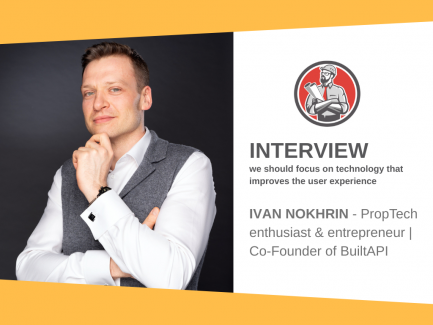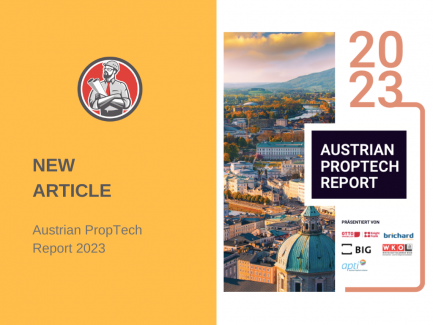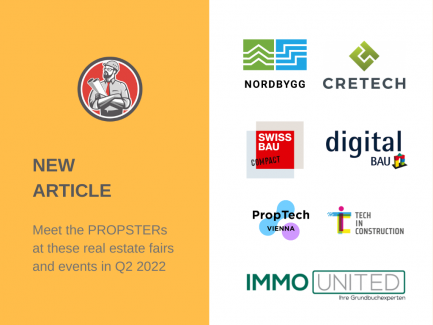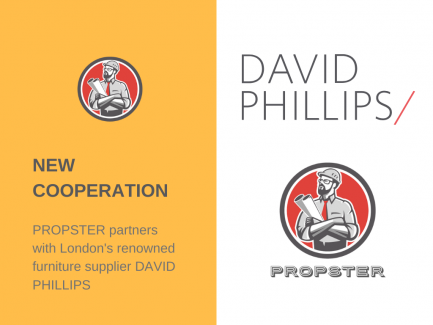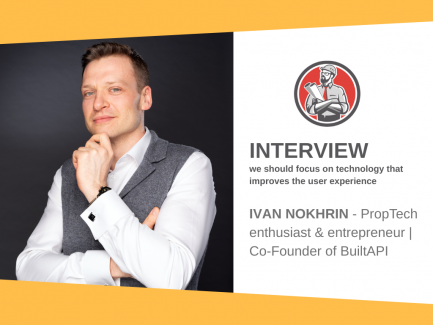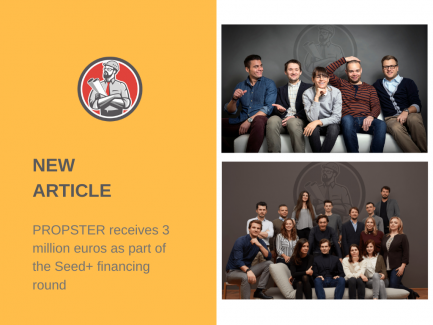Interview with Ivan Nokhrin – we should focus on technology that improves the user experience
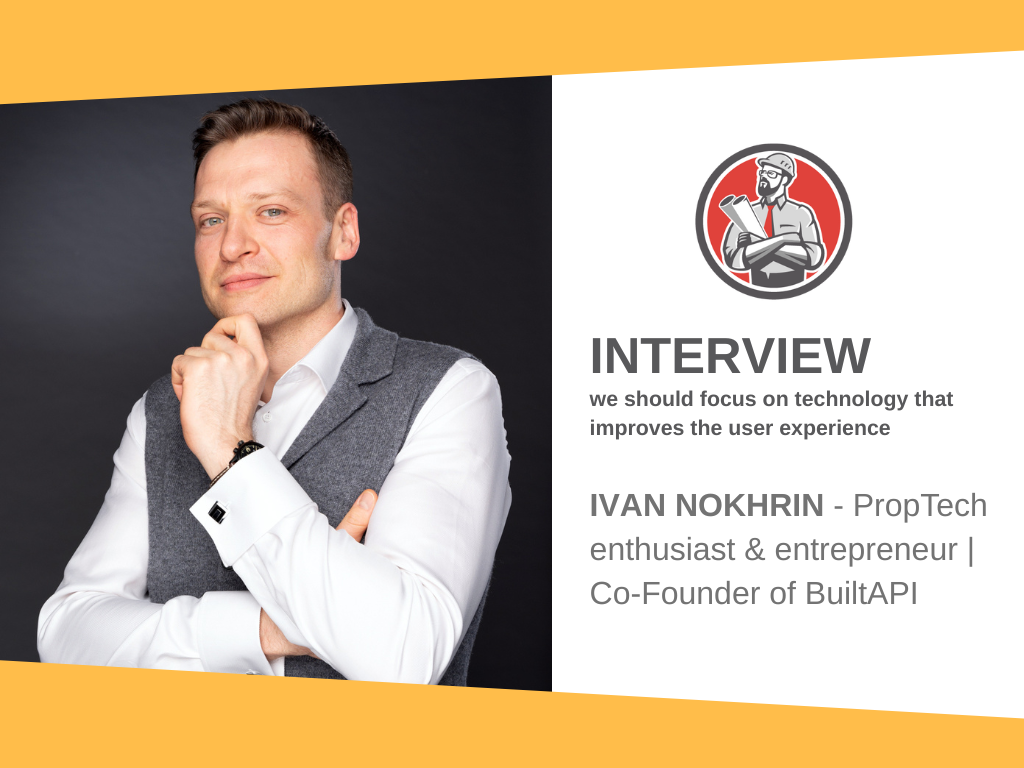
Ivan Nokhrin is a true proptech enthusiast who has devoted all his attention to this movement since the very beginning. Furthermore, he is also a true jack-of-all-trades in driving innovation in the real estate industry. Ivan co-founded Exquance, PropTech Russia, and BuiltAPI and founded Wiredhut. What connects us, is that we are sharing a passion for digitising real estate processes to make the world a better place. PROPSTER Marketer Aleks Gavric met with Ivan for an in-depth interview in which topics such as PropTech, sustainability, and future trends of real estate were discussed.
We hope you enjoy reading this interview.
Ivan Nokhrin – It was not called PropTech back then
Aleks: Hi Ivan, nice to meet you, please introduce yourself briefly. What is your background? What is your expertise?
Ivan Nokhrin: It’s my pleasure to attend this interview, Aleks. Before I started my first PropTech company, my career was with large investment groups like Aberdeen Asset Management, and banks, where I worked as an asset manager and fund analyst, performing investment analysis and valuations. So, the background that led me to PropTech was a professional real estate and finance background.
Aleks: Ivan you’re pretty busy, one would say a real jack of trades. You co-founded Exquance, PropTech Russia, and BuiltAPI, and founded Wiredhut. Before we take a closer look at BuiltAPI and PropTech Russia, how did your PropTech journey start? What does PropTech mean to you?
Ivan Nokhrin: My journey started over a decade ago when I was working for an investment company. I realized that a lot of processes could be done more effectively. I think many PropTech startup entrepreneurs share the same history. It was not called PropTech back then, it was usually referred to as something around digital media or digital solutions. Many software entrepreneurs in our field picked up the term PropTech very easily because it naturally became a commonly used *tech name to describe the phenomenon of the digital transformation of the real estate industry. When I think about the processes that are undergoing this transformation today, I like to take a little broader perspective and refer to them as a digital-first built environment, which is literally everything that is human-made around us, the urban environment and the infrastructure that people build for other people.
Interconnectivity of different industries
The digital-first approach is prioritizing digital solutions and digital media to pen and paper. When I talk about the digital built environment, I think about the interconnectivity of different industries, so I’m also including telecom and mobility into this notion of the digital-first built environment. Generally, it encompasses all the real-world assets and communication between them. If we consider IoT and the digital service networks in the built world, we can call it “things that think” – it’s a notion I like to use.
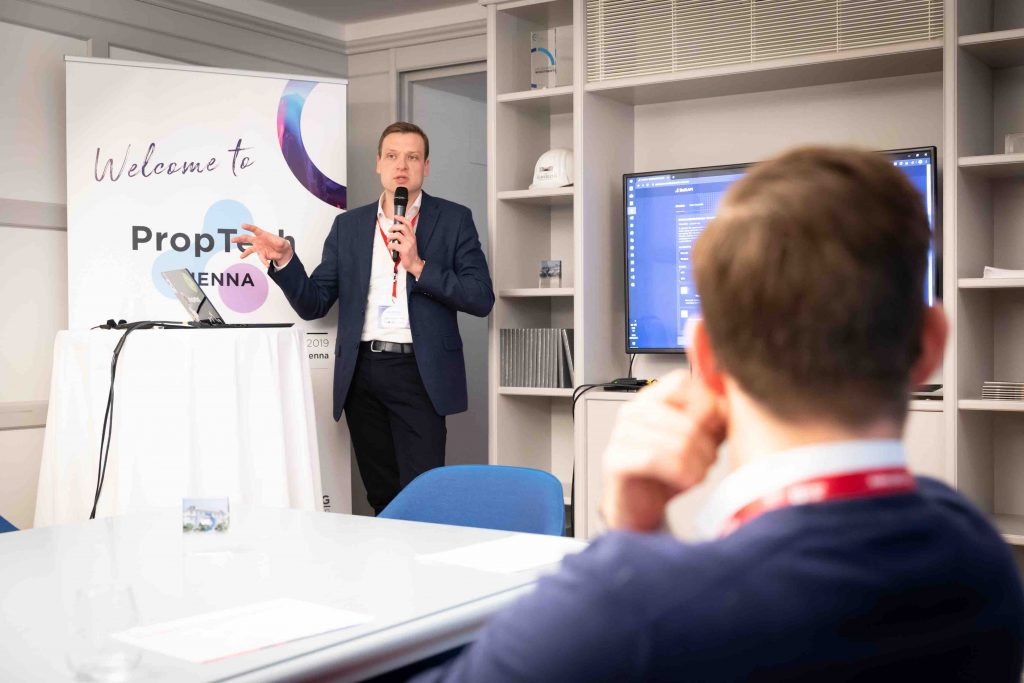
Aleks: You mentioned the term PropTech wasn’t even there when you started, right? So, who’s actually the creator of the term?
Ivan Nokhrin: It is disputed. There has been an evolution of terms like CRETech, RETech, PropTech, ConTech, and so on. The term was adopted from other faster-moving industries, like the “FinTech” in the financial industry or “MarTech” in the marketing industry, for example. It’s difficult to tell who was the initiator. I joined the global discussion when there was an attempt by, I think, James Dearsley, to stop somebody in the UK from registering a company with the name PropTech. And there was sort of a plea from the professional crowd not to trademark that name because it was already a common phrase. I guess it’s one of those things that probably originated quite naturally, and I would say in multiple heads around the same time. Evidently, the universe does have this single source of consciousness, as Nikola Tesla predicted.
The universe does have this single source of consciousness
Aleks: What do you currently expect from the digitization of the real estate industry?
Ivan Nokhrin: 6-7 years ago, when companies talked about digital transformation, it was usually implied that they wanted to make their processes more digital, to make outputs machine-readable. So that every transaction should be recorded in a machine. By the state of clients with whom we work today, we can judge that this kind of digitization is largely complete. Many processes in the real estate industry are digitised, and although one can argue that they are not yet optimal, today we have recorded digital traces of almost every transaction. Now the question becomes how the digital data that is generated by these digital solutions, is managed, owned, and shared. Who has the authority over how this data is stored and distributed?
How is the data managed, owned and shared
This is my current expectation from digitalization: the next step is resolving the trust issue and solving the problem of retention of asset data ownership by the companies who own real-world assets. The holders of the property title are almost competing with the technology vendors around the question of who owns the digital data and who has governance over the data.
Aleks: You mentioned James Dearsley. When I talked with James back then in June 2022, he said something interesting: It’s more about a mind shift than a digital shift. Do you agree or, if not, what is your view on this?
Ivan Nokhrin: I agree with James. Dealing with machines is always dealing with people because real estate is very much a people’s business. Currently, we observe a shift of authority from humans to algorithms, especially in the field of trust, it’s ongoing in different industries, and our industry is not an exception. The decision-makers, however, are still people, and it’s definitely a question of mindset, but what do we mean by that? What kind of mindset is necessary for successful innovation?
I’d say, having a digital-first mindset is enough to solve today’s digitalization problems. If a decision maker thinks, I need to make this investment decision, or I need to make this retrofit budget decision. If such a person has a digital-first mindset, he would ask himself, what kind of digital solution should I use, and what is the machine-readable output that is going to be produced every step of the way? How will this output be stored, protected and shared? Where is the element of value in this digital process? In my opinion, if the decision-makers in the real estate business have this kind of mindset, they’re fine. Then a working solution is only a question of method and what toolset to use.
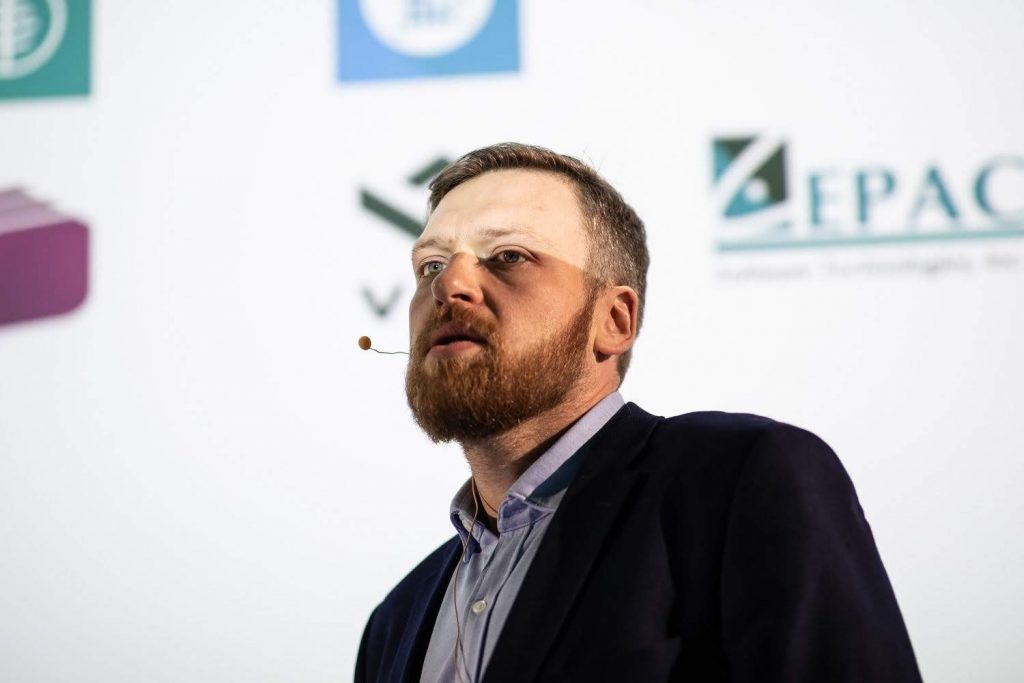
Connect people with things that think
Aleks: Thank you, Ivan. Let’s, switch to BuiltAPI. What is your vision? What is your mission? And what do you want to achieve with BuiltAPI?
Ivan Nokhrin: Many companies in the real estate sector are not satisfied with the current results of digitization. In other words, real estate digitization is not really meeting business expectations. The existing IT landscape is already complex and there’s an increasing number of business solutions in the marketplace. Real estate companies are often confused when they are selecting a particular technology. Solutions are often expensive, and buying from startups is risky. It usually takes a very long time to effectively integrate software, and then every new application inevitably adds a data silo.
Our mission is to facilitate the data integration process
BuiltAPI was created as a company that would develop an API platform to empower in-house innovators who need effective data exchange across their professional software landscape. Our mission is to facilitate the data integration process for these companies. There’s a very direct connection to what I said earlier about data governance and ownership because it is a big question: how can companies compete if everybody is using the same software? We help resolve the data governance and trust issues for the companies. This means companies can retain data ownership, have independent policies for their data governance, and create different smart use cases with the data that they take out of silos. It helps them to stay different and competitive in the marketplace.
The only way to carry ourselves through life is to understand that every one of us is a part of a greater self
BuiltAPI is a toolset for the real in-house innovation champions, who are not only carrying the title for compliance purposes, but who are advancing the industry forward by doing something practical. Our intention is to equip business users with a toolset that will replace or append their Excel skills because Excel is a great business tool. We want business users to be as comfortable with low-code scripts and APIs as they are with Excel functions. The only way to carry ourselves through life is to understand that every one of us is a part of a greater self, and everyone has a tremendous responsibility. Basically, as I said earlier, our purpose with BuiltAPI is to connect people with things that think. In this sense, we are committed to helping aspirational people inside big businesses succeed.
We are planning to organize a technology developer conference in Germany, focused on technology use cases in the digital-first built environment. It is going to be the first-of-a-kind technology conference created specifically for such innovation champions. So that people, who understand the processes inside big businesses and who actively use technology and understand what kind of use cases there are, can come and share their experiences. It will be more a technology developer conference, rather than a business conference – this is something that hopefully will enable us to boost that innovative human capital.
Ivan Nokhrin – sustainable is trustless
Aleks: Ivan, the question doesn’t even arise. But the real estate industry must focus on sustainability, if only for the sake of future generations. Your LinkedIn banner says the following: sustainable is trustless. What do you mean by the statement? What are you referring to?
Ivan Nokhrin: In my motto, “trustless” does not mean “unreliable”, or “untrustworthy”. I’m not using this term as eliminated trust, but as a minimal trust, or let’s say, distributed trust rather than delegated trust. Because as I said, when I was talking about people, everybody must retain their own responsibility for things we’re doing in life. At the same time, this responsibility has to be aligned with a shared long-term vision. Long term has great value in the process of goal-setting. Just Look at the current “energy crisis”. There are only a few leaders and policymakers who have people’s delegated trust to make essential and important decisions that impact billions of people on the planet, right? This trust can be misused, and the lives of people can be jeopardized as a result quite easily.
Everybody must retain their own responsibility for things they’re doing in life
So, “trustless” in my motto, actually stands for distributed ledger-based technologies and distributed trust. When we all as actors have our share of responsibility for what happens to us, and we code that trust in a mathematically written expression that has no obscurity and cannot be easily misused because it’s encrypted. Therefore, we can minimize the risk when one person makes decisions that impact billions, based on coarse data sets, and we can empower people with tools to operate based on honesty and transparency and make more granular decisions based on fine data sets. That’s what “trustless” means, it’s a smart contract-based relationship between people. It can be two people or hundreds, or millions of people. In order to build a sustainable business, we need to be long-term oriented.
We need to be focused on the long-term goals of the whole complex built environment
To give you an example, in my family my wife and I set ourselves a 50-year goal. I think bigger social formations, like cities and societies, countries and unions of countries, have to set even longer-term goals and think about what’s going to happen in hundreds of years. In that sense, when we talk about sustainability applicable to real estate, we need to be focused on the long-term goals of the whole complex built environment and not just think that sustainability is all about CO2 emissions.
The CO2 emission and global warming issues are very controversial. I think a lot of people would agree with that. Take a look at some conferences and recent publications that claim that investment in real estate is sustainable. But at the same time, real estate as an industry is the largest CO2 emission contributor, and it’s the dirtiest asset class in terms of emission volume.
The CO2 emission and global warming issues are very controversial
In my view, if we want to really embrace the understanding of sustainability, we have to look for long-term goals keeping the interest of people first, and the industry’s digital data exchange should be based on a distributed ledger to keep all the stakeholders accountable. The responsibility has to be shared among all the participants, and all the stakeholders of real estate, including investors, asset managers, property managers, tenants, and users. We all have to be involved.
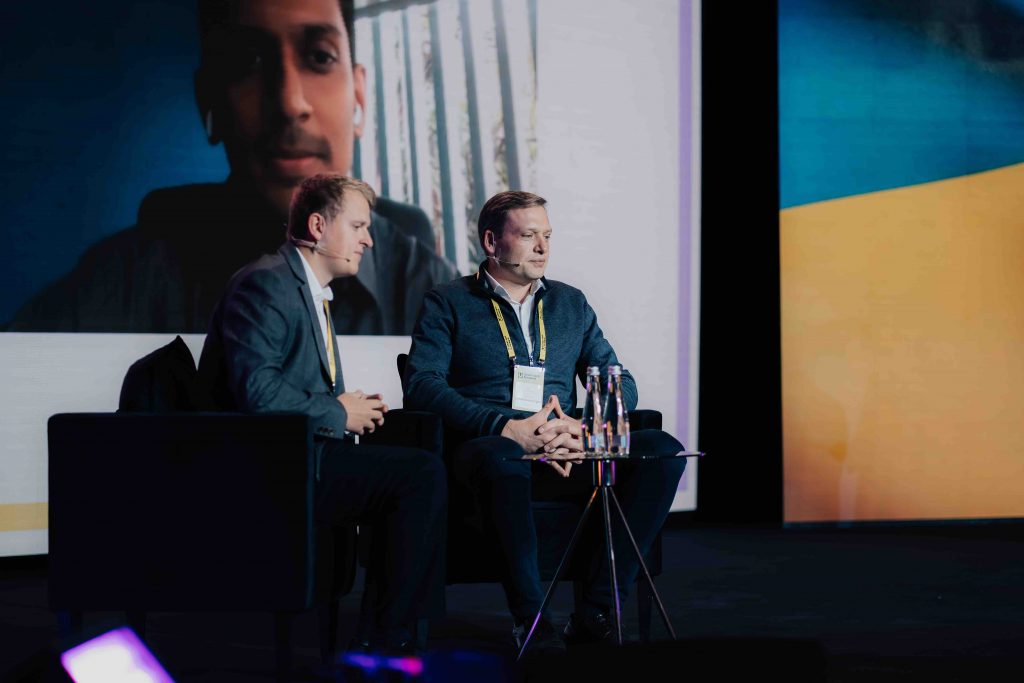
We have to look for long-term goals, keeping the interest of people first
Aleks: Let’s talk about the real estate and PropTech industry in Russia. What challenges are real estate developers facing in the Russian market?
Ivan Nokhrin: There’s a strong demand in Russia for an internal supply of technology innovations. Of course, the sanctions have slowed, in some cases stopped, or even retracted the development of innovative technologies. It’s also a challenge that quite a large number of the most economically active people have emigrated from the country. It’s a difficult topic to discuss as there is a lot of unreliable information, and it’s hard to make conclusions due to the obvious lack of clarity. We are hoping for peace as soon as possible. It will be a complicated process to normalize things that have been changed so radically and so brutally in this past year.
Aleks: I can imagine how hard it has to be for you to speak about this Topic. Even if it is difficult, let’s fade out the current situation for a moment and come back to whether Russian project developers are facing similar challenges to those in Europe.
The Russian PropTech scene is a little more advanced than in Europe
Ivan Nokhrin: The Russian market has a different structure by European comparison. Commercial real estate is not institutionalized at all in Russia. The main driver of the real estate market is the residential sector. The residential sector has seen quite a nice steep growth in the couple of years preceding 2022, because of the more affordable mortgages and a higher number of good development projects across the whole country. I think consumers have been spoiled by access to good retail technology, especially in big cities. So, in that sense, in some parts, the Russian PropTech scene is a little more advanced than in Europe. In terms of approximation to the Chinese sort of personalized super apps, Russia is closer to embracing super apps than Europe is. But as far as the real estate developers are concerned, I think it’s pretty much the same challenges as in Europe.
Aleks: How many PropTechs actually exist in the Russian market? The UK has around 2000 PropTechs. I think Germany, something between 500 and 600, Switzerland almost 400, and I learned a few days ago that Austria has 200 PropTechs, which is a pretty high number for such a small country.
A personalized building means that it can respond to an expectation of a user through a communication channel
Ivan Nokhrin: It’s difficult to say how many remain in Russia now. I can tell you that when we did our last conference before the pandemic, we had gathered over 700 different startups in different stages of development that we attributed to being a part of the PropTech scene. We also include construction-related solutions, customer-facing or tenant-facing applications, and mobility solutions like self-driving cars, drones, delivery robots, and partly also FinTech startups, which we also attributed to the PropTech scene. So, it’s quite a rich arena. When we started PropTech Russia and when we reached out of the capital cities, we were surprised to find that there were multiple solutions that originated locally in smaller cities like Izhevsk, not only large cities like Ekaterinburg or Novosibirsk, which have over 2 million inhabitants. There are good local solutions, and it’s a very fragmented scene.
Aleks: let’s talk about PROPSTER. As you know, we follow a very customer-centric approach. What role will customer centricity play in the coming years? What role will PROPSTER play in the coming years?
Property technologies and built-world innovations enable a smarter environment
Ivan Nokhrin: I think in general, property technologies and built-world innovations enable a smarter environment, which means a more personalized approach to users, or personalization of buildings if you will. A personalized building means that it can respond to an expectation of a user through a communication channel. So custom fit-out and seamless experience of a person from buying a property to moving in are what a customer-centric approach means in terms of real estate, in my view. And I think PROPSTER is a great and very successful example of how this gap, to unite different stakeholders on a customer journey, can be bridged.
So, you guys are definitely a good example to show how the property developer, a construction company, a fit-out company, and vendors of different equipment and fit-out materials, can all work together in a seamless chain, so the customer has a unique experience and a customized product in the end. I admire your progress in the past years, and certainly, the role that PROPSTER plays in the market is a leadership role, you are setting a perfect example for the industry players on how to do things in a proper working way.
Aleks: Thank you for these nice words, Ivan. So, one more question before we move to your closing word. API was the real estate word of the year in 2021, closely followed by ESG compliance. In 2022, everyone was just talking about ESG, what trends can we expect in 2023?
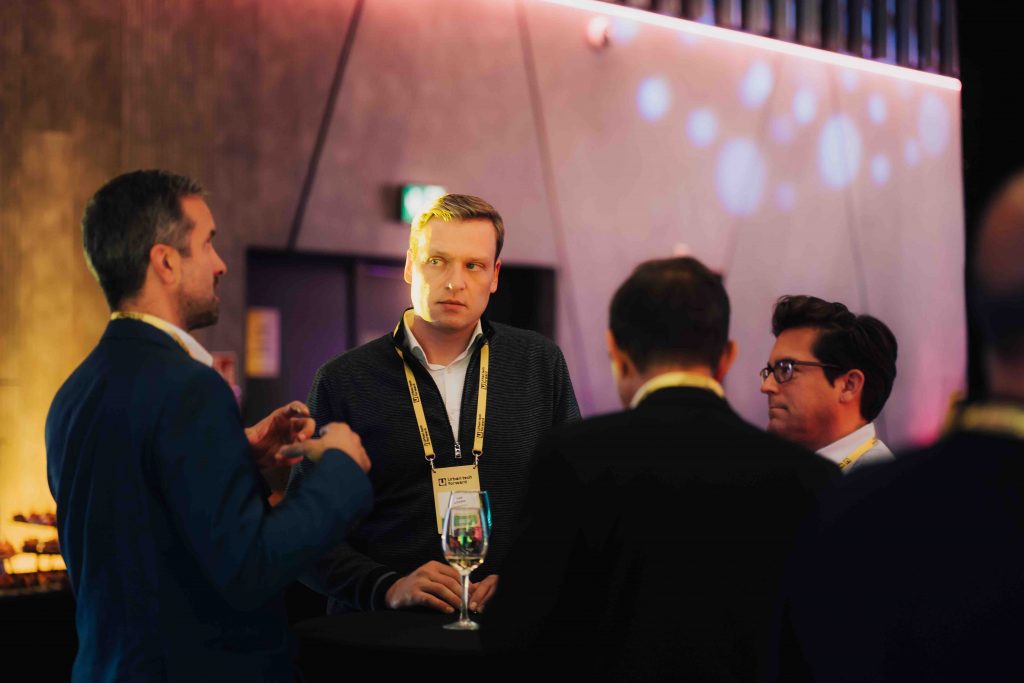
What cannot be measured cannot be managed
Ivan Nokhrin: What cannot be measured cannot be managed. When we build data-driven solutions for real estate, when we create this digital-first real estate strategy for companies, we should focus on technology that improves the user experience in the built environment, and on technology solutions that can produce a measurable impact on the property performance itself. So, if you line up these acronyms. If API was the word of 2021, and ESG of 2022, I would dare say that in the year 2023, the word of the year is going to be ROI, which stands for “return on innovation”. Because the current crisis clearly shows that the real estate industry is under pressure, and I think that decision-makers are going to really focus on solutions that really work, save money and increase property performance. The current crisis, as with any stress, is going to have a purification effect on the industry. So, my guess is that the word of 2023 is going to be ROI.
Who is actually paying for it?
Aleks: Okay, so here we are, at the end of the interview. Your closing word or sentence is going to be?
Ivan Nokhrin: We talk a lot about sustainability in the built environment, and how to build better sustainable and socially oriented solutions. It’s all good and well. If you look at the famous UN targets, they’re all good. But I think the main question that is slipping away from our attention, is who is actually paying for it? At what cost are we doing that? Because if you set some goals for the next ten years, which imply that multiple industries need to dramatically change the way they are operating, at the same time, it seems unlikely to end well. When we talk about the sustainable built environment, we need to focus on actual things that improve our lives, and not just on blind compliance with some populist policies that require that we spend tremendous amounts of money, which is literally borrowed money from future generations.
A pretty good hope for humanity
Startup entrepreneurs, critical thinkers who experiment and test ideas, are a pretty good hope for humanity to really support and nurture this ecosystem in the built environment. The true ecosystem of the built environment is not the worn-out contemporary corporate jargon, but the people who create and test innovations, who focus on things that really work. We have to ask ourselves this question: what is sustainability that is really future-proof, that will help our children and not just endlessly borrow from future generations? Let’s be honest, tech startup entrepreneurs are the only few these days that remain faithful to this global thinking. The policymakers and politicians seem to favour tribalism, building walls and tearing the social fabric in the name of the status quo. Tech entrepreneurs are truly global guys. I think global thinking and long-term thinking will save the world. That’s what we should strive for.
Aleks: Ivan, thank you for your time and for sharing your thoughts with our community.
Did you like the article? Are you a real estate project and property developer and would like to lead your company into a successful future? Then book a < < < FREE DEMO > > > now.

